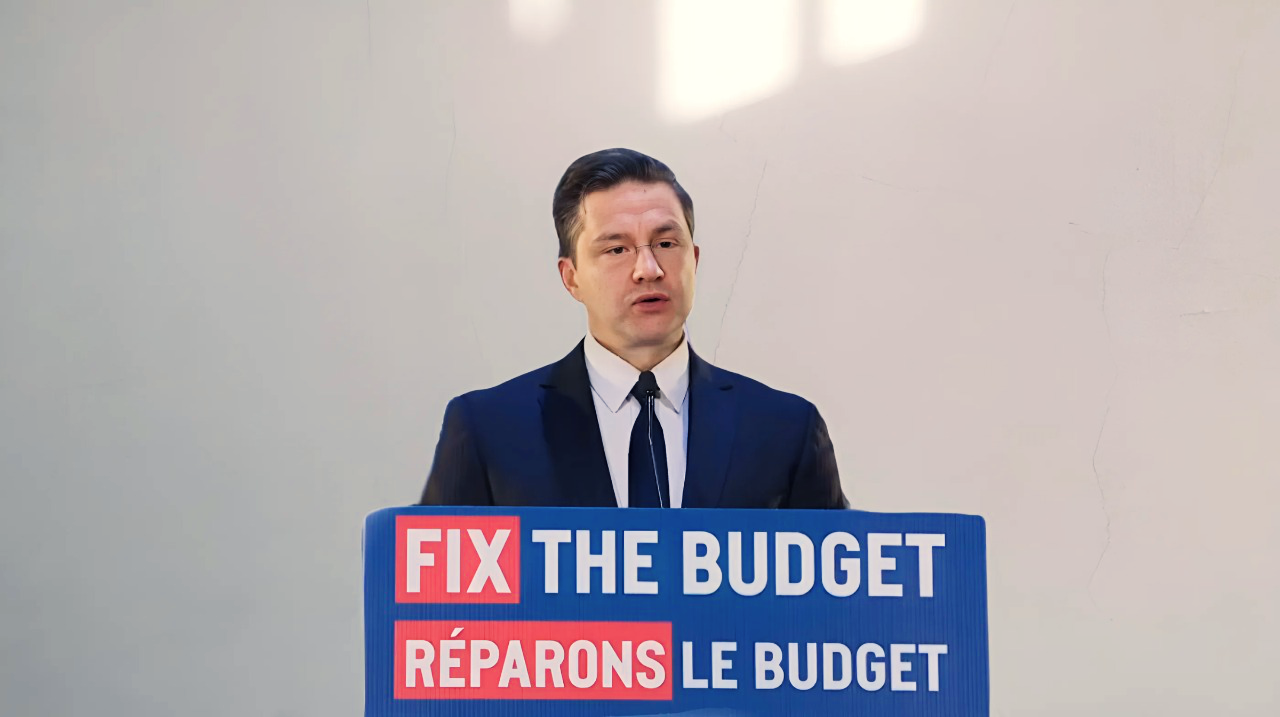Conservative Leader Pierre Poilievre held a news conference in Mississauga, Ontario, alongside Conservative MP Jasraj Singh Hallan, where he addressed the upcoming federal budget tabled by Finance Minister Chrystia Freeland on April 16. Poilievre’s remarks centered on his concerns regarding the economic direction of the country under the Liberal government, particularly focusing on the impact of rising living costs on Canadians.
During his speech, Poilievre wasted no time in highlighting the stark realities faced by Canadians. He pointed out the palpable burden of increased living expenses, emphasizing the impact on everyday essentials like groceries and fuel. Poilievre painted a grim picture of a nation grappling with rising food prices, dwindling purchasing power, and a burgeoning reliance on food banks, starkly contrasting the promise of prosperity Canadians once enjoyed.
The Conservative leader didn’t mince words when addressing the human toll of economic mismanagement, citing distressing incidents such as families unable to afford proper burials for their loved ones and military personnel relying on food banks to make ends meet. He underscored the alarming rise in homelessness and malnutrition, painting a somber picture of the consequences of Trudeau’s policies on the most vulnerable segments of society.
Poilievre reiterated the robust Conservative plan aimed at addressing the nation’s woes head-on. He outlined three key demands for the forthcoming budget, each designed to alleviate the financial strain on Canadians and steer the country toward a path of fiscal responsibility and prosperity.
Firstly, Poilievre called for the abolition of the carbon tax on food and farmers, citing the detrimental impact it has had on household budgets and agricultural livelihoods. He stressed the urgency of passing legislation to provide relief from this burden, signaling the Conservatives’ commitment to easing the financial strain on Canadian families.
Secondly, Poilievre advocated for a focus on housing construction over bureaucratic red tape. By incentivizing municipalities to expedite housing permits, he aimed to tackle the housing affordability crisis head-on, ensuring that Canadians have access to safe and affordable housing options.
Lastly, Poilievre proposed a dollar-for-dollar law to cap government spending, citing the need to rein in inflation and interest rates. This prudent fiscal approach aimed to restore balance to the economy and safeguard Canadians from the erosive effects of unchecked government spending.
Throughout his address, Poilievre remained steadfast in his commitment to representing the interests of everyday Canadians. He underscored the Conservative Party’s dedication to axing taxes, building homes, fixing the budget, and combatting crime, presenting a clear alternative to the status quo.
In the ensuing question period, Poilievre fielded inquiries on a range of topics, from defense spending to federal-provincial relations. His responses underscored his unwavering resolve to prioritize the needs of Canadians and work collaboratively towards a brighter future for the nation.
As Poilievre concluded his remarks, the message was clear: Canadians deserve better, and the Conservative Party stands ready to deliver on its promises.

